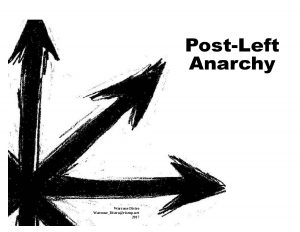
Text from the zine:
“Why has there been such a long history of conflict and enmity between anarchists and the left? It is because there are two fundamentally different visions of social change embodied in the range of their respective critiques and practices (although any particular group or movement always includes contradictory elements). At its simplest, anarchists especially anarchists who identify least with the left-commonly engage in a practice which refuses to set itself up as a political leadership apart from society, refuses the inevitable hierarchy and manipulation involved in building mass organizations, and refuses the hegemony of hand, has most commonly engaged in a substitutive, representational practice in which mass organizations are subjected to an elitist leadership of intellectual ideologues and opportunistic politicians. In this practice the party substitutes itself for the mass movement, and the party leadership substitutes itself for the party.”
“In reality, the primary function of the left has historically been to recuperate every social struggle capable of confronting capital and state directly, such that at best only an ersatz representation of victory has ever been achieved, always concealing the public secret of continuing capital accumulation, continuing wage-slavexy, and continuing hierarchical, statist politics as usual, but under an insubstantial rhetoric of resistance and revolution, freedom and social justice.”
Post-left anarchy short pdf
